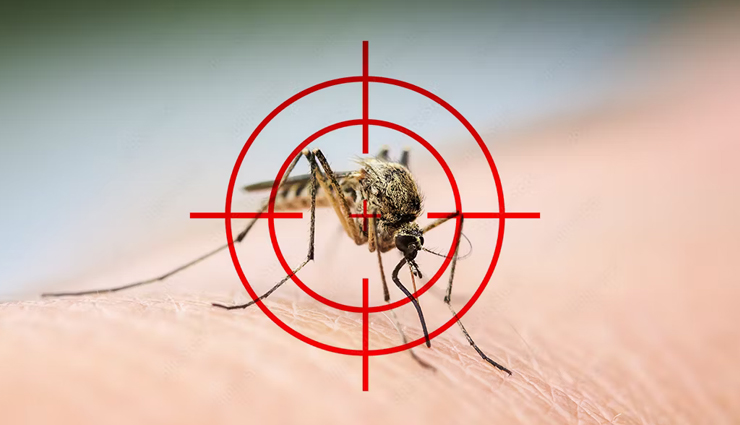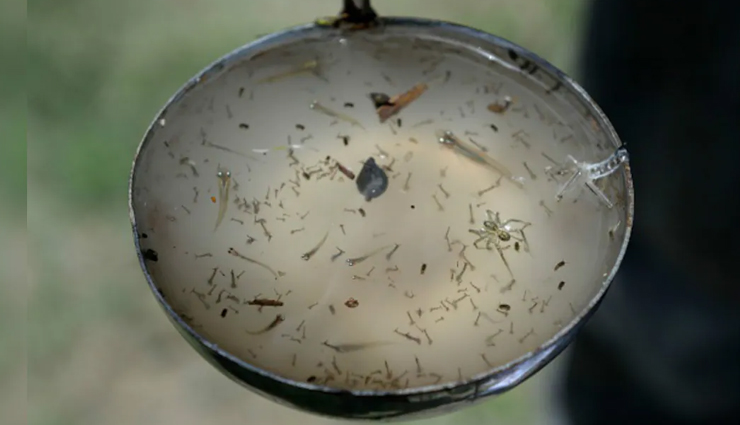

Eliminate any standing water in and around your home, as mosquitoes breed in stagnant water. Empty containers, flower pots, and bird baths regularly. Ensure proper drainage in your yard and repair any leaks or areas where water accumulates.

Lemon eucalyptus oil is a natural mosquito repellent. Mix it with a carrier oil, such as coconut oil, and apply it to your exposed skin. Alternatively, place a few drops in a diffuser to repel mosquitoes indoors.
Citronella candles emit a fragrance that mosquitoes find unpleasant, helping to keep them away. Place these candles strategically around your outdoor living areas to create a barrier against mosquitoes.
Neem oil has mosquito-repellent properties. Dilute neem oil with water and spray it around windows, doors, and other mosquito entry points. You can also apply it directly to your skin, but do a patch test first to check for any sensitivity.
The scent of lavender is known to repel mosquitoes. Plant lavender in your garden or place dried lavender sachets around your home. You can also apply lavender oil to your skin or use a lavender-infused room spray.
Mosquitoes dislike the odor of garlic. Increase your garlic intake or consider using garlic powder in your cooking. You can also create a garlic spray by mixing minced garlic with water and spraying it in mosquito-prone areas.
Camphor has mosquito-repellent properties. Place a small amount of camphor on a heat-resistant surface and light it. Close the room or area for about 15 minutes, then ventilate it before re-entering.
Peppermint oil can help repel mosquitoes due to its strong scent. Dilute peppermint oil with water and spray it around windows, doors, and other entry points. You can also apply it to your skin, but be cautious of any skin sensitivity.
Mosquitoes are weak flyers, so using a fan or increasing air circulation can help keep them away. Position fans strategically to create a breeze and disrupt their flight patterns, making it harder for them to land on you.
Install mosquito nets on windows and doors to prevent mosquitoes from entering your home. Repair any damaged screens to keep them out. When sleeping, use a mosquito net around your bed for added protection.
Plant mosquito repellent plants in your garden or place potted versions near entry points. Examples include citronella, lemongrass, lavender, mint, and marigolds. These plants emit natural scents that repel mosquitoes.
This technique is ideal for compact areas or individual rooms. It is incredibly easy to implement—just arrange some sliced lemons with a handful of cloves. You'll effectively repel mosquitoes without the need for extermination. By employing this method, you can create an environment that mosquitoes simply won't want to enter. It's a definite win-win situation!
Carnivorous plants do not pose any threat to humans; however, they play a vital role in controlling the mosquito population as they trap and consume mosquitoes for sustenance. The intriguing nature of these plants makes them a captivating addition to your mosquito-fighting arsenal, complementing the other remedies we've discussed. These unique plants derive the necessary nutrients for their growth from insects, providing you with the perfect excuse to acquire a carnivorous plant for your home!
Create homemade mosquito traps using simple materials. One effective method is to cut the top off a plastic bottle, invert it, and place it back into the base. Fill the bottom with a mixture of water, sugar, and yeast. The carbon dioxide produced will attract mosquitoes, trapping them inside.